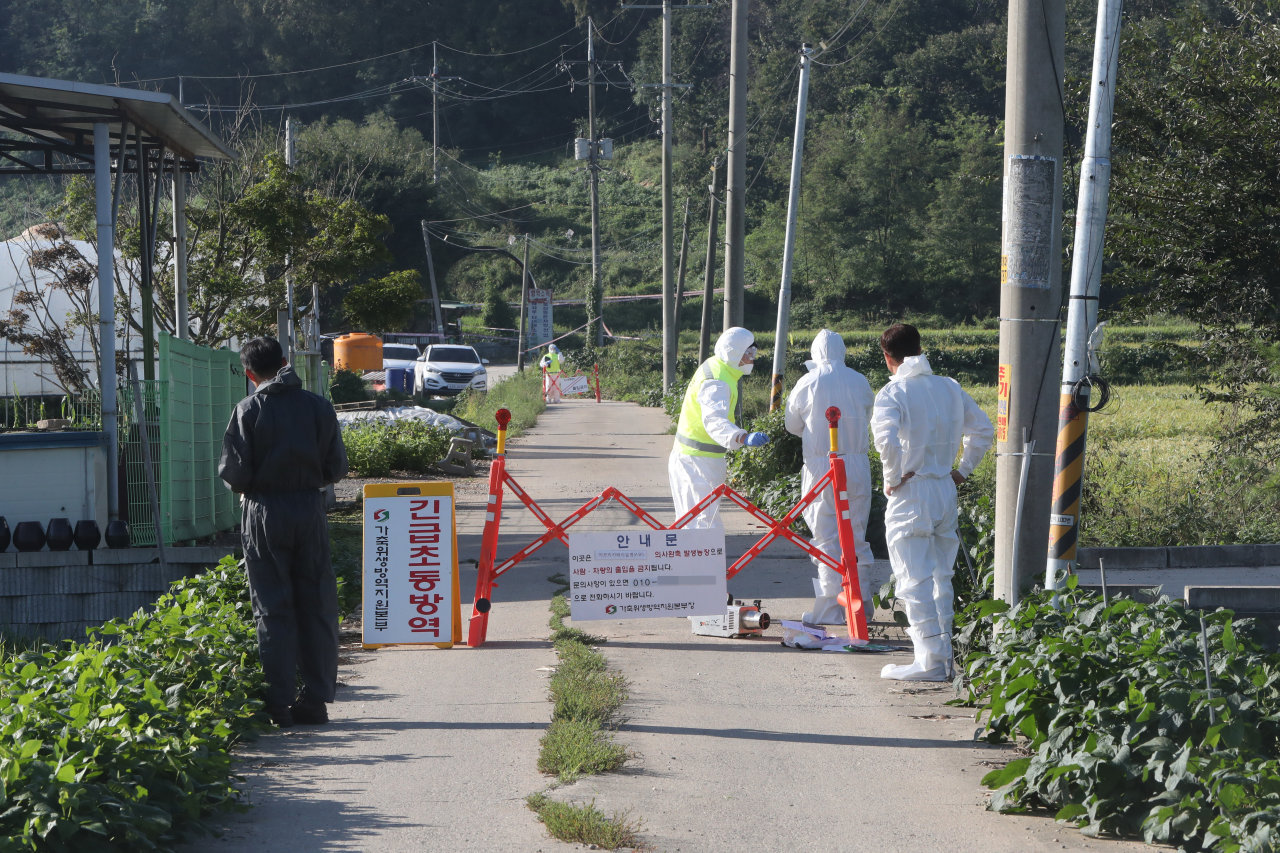S. Korea going all-out to halt further spread of African swine fever
By YonhapPublished : Sept. 24, 2019 - 20:06
Following the fourth confirmed case of African swine fever (ASF) in a week, South Korea ratcheted up efforts to stem the further spread of the highly contagious disease by expanding the extent of tightly controlled regions and again imposed a movement ban on pigs across the nation.
Under the emergency plan, the agriculture ministry revved up quarantine operations for all parts of Gyeonggi Province where ASF cases were confirmed, along with the neighboring Gangwon Province and Incheon.

Previously, just six northern counties in Gyeonggi Province had tightly controlled the movement of pigs.
The agriculture ministry also initiated a 48-hour standstill for all pig farms, feed factories and slaughterhouses throughout the country, effective as of 12 p.m.
South Korea experienced its first-ever ASF case on Sept. 17 in Paju, a municipality located in the north of Gyeonggi Province bordering North Korea. The second case was reported the following day in neighboring Yeoncheon. More ASF cases were also reported within Gyeonggi Province this week, adding to woes over a possible nationwide outbreak of the disease.
Despite the four confirmed cases so far having come from areas close to the northern border, local authorities have been making efforts to prevent any further spread of the virus, which has no cure.
Although ASF does not affect people, it is fatal for pigs. Authorities have been slaughtering pigs within a 3-km radius of the farms infected with the fever, larger than the required 500-meter radius. The government had culled 16,000 pigs as of Tuesday morning as part of precautionary steps. When completed, the total number of pigs culled since last week is set exceed 20,000, quarantine authorities said.
The ministry installed checkpoints on roads connecting to the affected farms and banned entry for visitors.
The government also mobilized all available disinfection vehicles, including ones from the military, to prevent the spread of the deadly virus.
The ASF cases came roughly four months after North Korea reported its first confirmed case of the disease -- at a farm near its border with China -- to the World Organization for Animal Health.
The disease is mainly spread by contaminated feed or by direct contact with people and wild animals with the virus.
Local authorities are currently working to determine what caused ASF to spread to South Korea, including inspecting waterways that connect to North Korea.
Agricultural Minister Kim Hyeon-soo, meanwhile, acknowledged that South Korea is yet to find what has caused a series of infections among local farms.
As the incubation period of ASF is up to 19 days, local farmers are remaining vigilant over a possible nationwide outbreak of the disease. (Yonhap)







![[KH Explains] How should Korea adjust its trade defenses against Chinese EVs?](http://res.heraldm.com/phpwas/restmb_idxmake.php?idx=644&simg=/content/image/2024/04/15/20240415050562_0.jpg&u=20240415144419)











![[Today’s K-pop] Stray Kids to return soon: report](http://res.heraldm.com/phpwas/restmb_idxmake.php?idx=642&simg=/content/image/2024/04/16/20240416050713_0.jpg&u=)